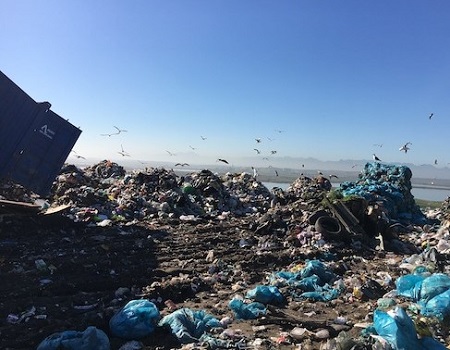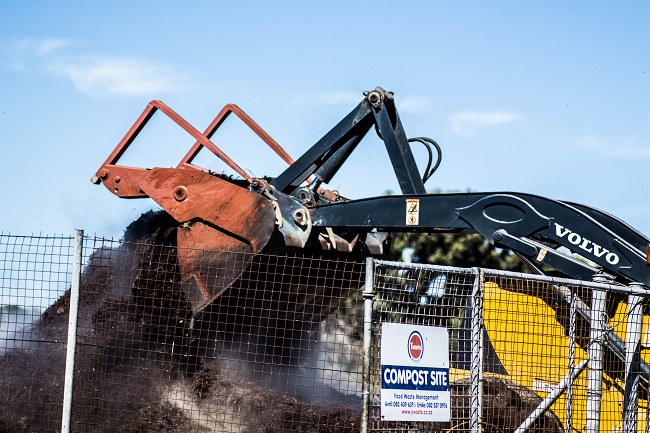Can Dump Sites Break Down Compostable Packaging?
We often get asked if our products break down in landfill.
The short answer is yes, they will break down eventually. But really, nothing breaks down well in landfill, and zero waste to landfill is what we should all be aiming for.
This article outlines what happens in a landfill and why we need to find a better solution. It also explains why compostables are still the way to go, even if they do end up in a landfill.

A Dead End
Landfill is not so much a waste management strategy as a last resort. It’s a big pile of all the things we throw out – a storage space for trash. That’s why we call it the dump. And a lot of what ends up there doesn’t belong there. Most especially organic waste.
A lot of people think that all the banana peels, apple cores, left over pizza and other kitchen scraps they send to landfill simply break down into lovely soil. This is definitely not the case.
Landfill has the wrong conditions for anything to break down. Any food will be sandwiched between layers of plastic, which blocks oxygen. Plus, the waste is compacted, further reducing oxygen. Under these conditions, organic waste will either not break down at all, or will slowly rot, releasing methane, a very potent greenhouse gas.
Breaking the Natural Cycle
Unlike old plastic packaging and toothbrushes that can’t be recycled, organic waste is part of nature and always has a purpose. It contains the building blocks of life and can be reused again, and again, and again. We interrupt this natural cycle when we send it to landfill.
South Africa is also rapidly running out of landfill space. And close to 40% of the waste we send to landfill is organic. Finding environmentally friendly solutions for organics, like composting, is essential to alleviate pressure on landfills and reduce our carbon footprint.

The Compostable Packaging Solution
The best end of life scenario for compostable packaging is always composting. They will likely remain fairly inert in a landfill.
But compostables are still the best solution, even if they don’t get composted (yet). They are made from renewable plants instead of polluting fossil fuels and are much less damaging than plastic if they end up in the environment. And they are a major step towards bringing our human systems into sync with nature’s cycles and systems. Diverting organic waste (and indeed all waste) from landfills won’t happen overnight, but it must happen. We simply can’t keep creating mountains of trash.

